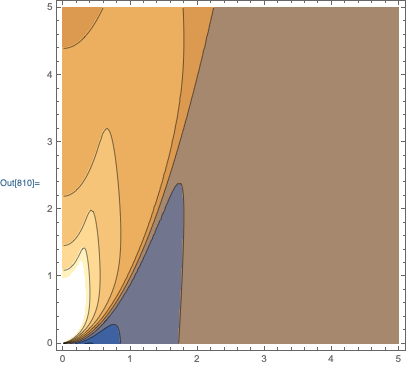I am trying to plot a multiple variable integral. But somehow this is not working. This is my code.
a = 5;
b = .1;
f = (1 + Exp[(k - a)]);
B = f*(1/(z - (q^2 + k*q*x) + I*b) +
1/(z - (q^2 - k*q*x) + I*b));
ListContourPlot[
NIntegrate[Re[B], {x, -1, 1}, {k, -a, a}], {z, 0, 5,
1}, {q, 0, 5, 1}]
I shall be more interested in keeping the steps size of z and q fixed. Any help will be highly appreciated

